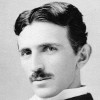“ For nature hath made us equal, but fortune hath some exalted and others deprived; nevertheless is virtue often deprived and the virtuous men despised ”
François Rabelais, Gargantua and Pantagruel (1534). copy citation
| Author | François Rabelais |
|---|---|
| Source | Gargantua and Pantagruel |
| Topic | virtue fortune |
| Date | 1534 |
| Language | English |
| Reference | |
| Note | Translated by Sir Thomas Urquhart of Cromarty and Peter Antony Motteux |
| Weblink | http://www.gutenberg.org/files/1200/1200-h/1200-h.htm |
Context
“Al quale e adviso che le mani et li denti habbiano perso il loro ordine naturale et del tutto annichilati.’ To which Epistemon answered, As much of the one as of the other, and nothing of either. Then said Panurge:
'Lord, if you be so virtuous of intelligence as you be naturally relieved to the body, you should have pity of me. For nature hath made us equal, but fortune hath some exalted and others deprived; nevertheless is virtue often deprived and the virtuous men despised; for before the last end none is good.’ (The following is the passage as it stands in the first edition. Urquhart seems to have rendered Rabelais’ indifferent English into worse Scotch, and this, with probably the use of contractions in his MS., or 'the oddness’ of handwriting which he owns to in his Logopandecteision”
source



